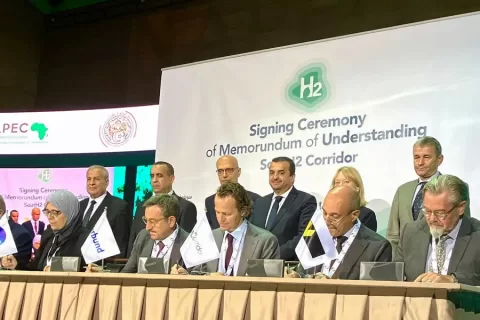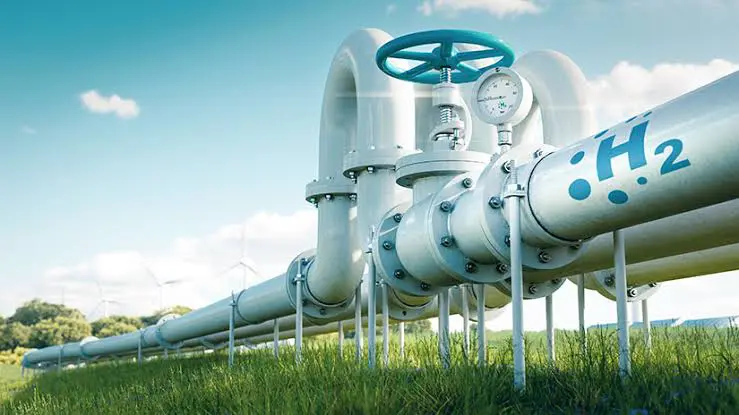On October 16th, Algeria made a significant step towards embarking on a major project with Europe which entails constructing a hydrogen project development, the Africa-Europe Hydrogen Corridor.
Algeria signed an agreement with several companies from Europe that will enable the exploration of how feasible and profitable it is going to be to establish a hydrogen Corridor that will connect North Africa and Central Europe.
Project Factsheet
Name: SoutH2 Corridor
Length: 3,300 kilometres
Participant countries: Algeria, Italy, Germany, and Austria
Cost: 7 billion euros
Individual PCI project candidates:
- Italian H2 backbone (promoted by Snam Rete Gas),
- H2 Readiness of the TAG pipeline system ( promoted by Gas connect Austria GmbH),
- H2 Backbone WAG+Penta-West (promoted by Gas connect Austria GmbH)

Participant Companies
Companies that were part of this agreement are Sonatrach and Sonelgaz from Algeria, VNG from Germany, Snam from Italy, SeaCorridor which is a partnership between Eni and Snam, and lastly Verbund Green Hydrogen from Austria. This signing ceremony took place at Palais des Congres in Oran. This ceremony was attended by Minister of Energy and Mines of Algeria, Mohamed Arkab. Also in attendance were the leaders of these companies.
This partnership will allow the stakeholders to study the possibility of producing hydrogen in the North African country, Algeria. Moreover, the main aim is to supply hydrogen to the European continent via the SoutpipH2 corridor. This is a 3,300 kilometer pipeline that will link North Africa with Austria, Germany, and Italy.
Also read: Cleanergy Solutions Namibia, Africa’s First Green Hydrogen Plant Established in Walvis Bay
This project is being supported by the European Commission. It has an aim of providing renewable hydrogen by reusing the current existing pipelines and adding new ones where need be.
Significance of the Project
“This corridor will will be instrumental in helping us cut our dependence on fossil fuels and encourage a move towards a future that is more sustainable and with low carbon emissions,” the officials commented, “ If the project becomes successful, it could meet the green energy demand for Europe and strengthen the role of Algeria as a crucial supplier of energy.”
Hans-Joachim Polk who is the Member of the Board of Management for Infrastructure and Technology at VNG said, “After VNG signed for a contract of supply for the Algerian pipeline gas at the start of the year, we are indeed happy to have set the foundation for a broadly based hydrogen foundation today.” He also commented on the African country potential of hydrogen by saying, “ Algeria possesses enormous potential in production of this energy source that will be quite useful in the future. This makes Algeria our key partner.”
“ I am pleased that we will be partnering with companies of Algeria, Italy, and Austria to undertake this project. International cooperation will be of great essence in rolling out hydrogen economy in Germany and Europe in general. This is because the demand of hydrogen cannot be met when depending solely on domestic production.”

Leave a Reply